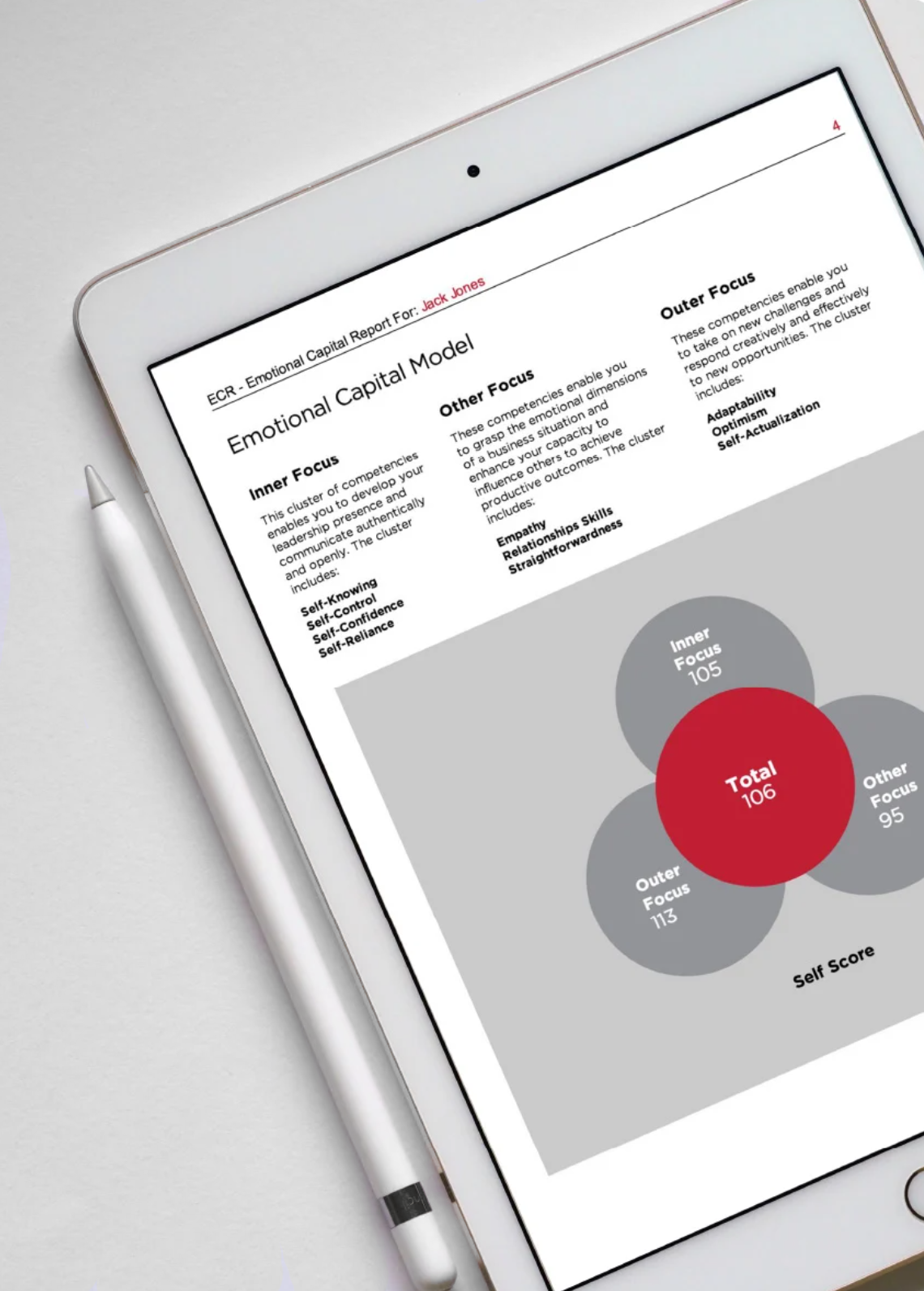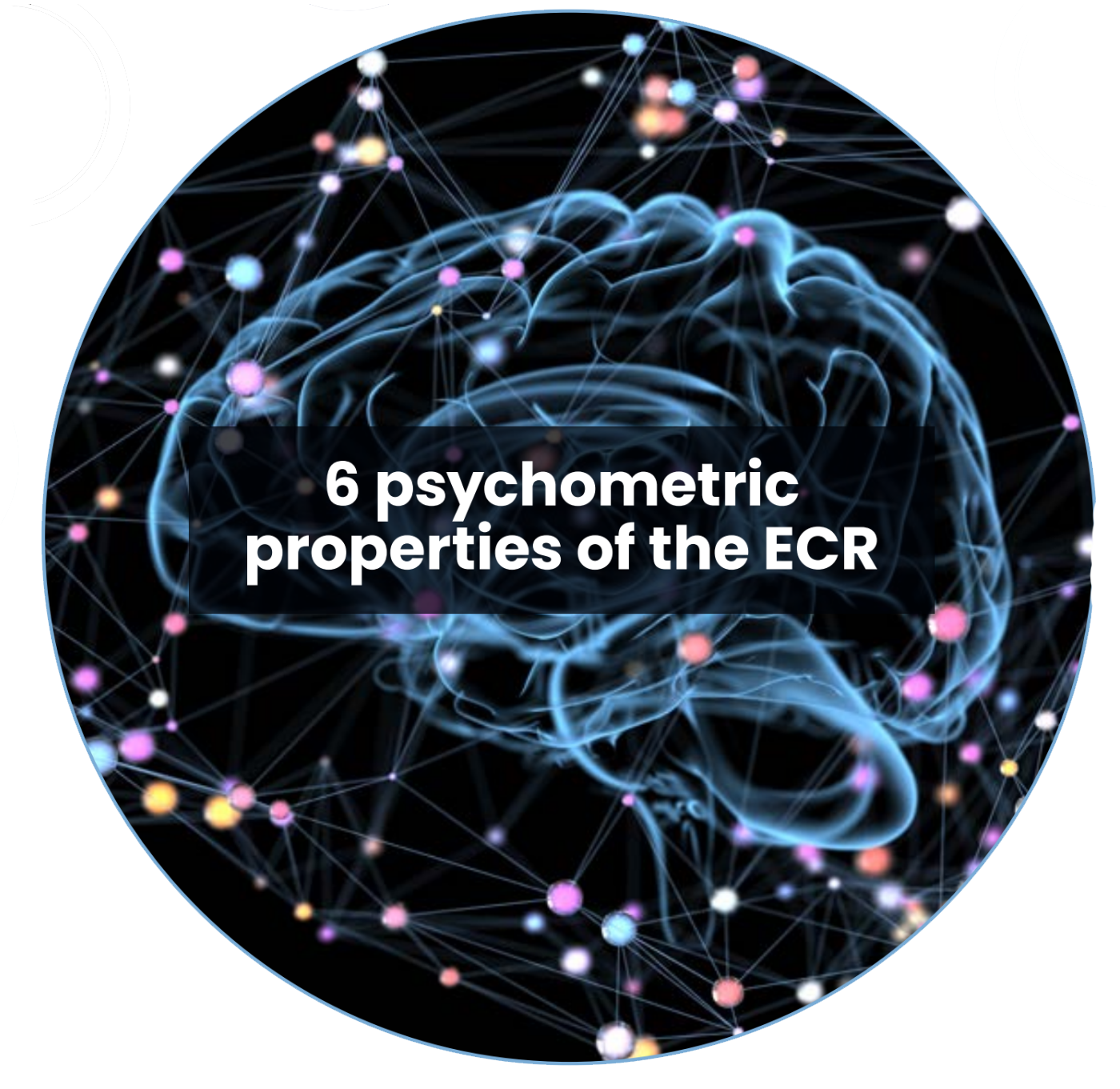The Emotional Capital Report (ERC) by RocheMartin
Measuring the emotional intelligence that drives leadership success.
What is the ERC?
Emotional Capital Reports (ECR) are psychological assessments designed to evaluate leadership behaviors. They measure a leader's proficiency across 10 key emotional and social skills that are essential for effective leadership.
10 Competencies Measured by ECR
Inner Focus
Helping individuals recognize and control their own emotional challenges and communicating openly.
Self-Knowing:
Recognizing how your feelings impact on your opinions, attitudes and judgments.
Self-Control:
Being able to control your emotions and show restraint until you have had the time and space to think in a detached and rational manner.
Self-Confidence:
Being able to accept and respect yourself as you are
Self-Reliance:
Being able to plan, make decisions and take responsibility with relative comfort and ease (i.e. you don’t need others to verify your actions).
Other Focus
Enhancing our capacity to influence others through positive interpersonal relationships.
Empathy:
Being aware of, understanding and appreciating the feelings of others’ thoughts and feelings.
Relationship Skills:
Being able to build collaborative, positive relationships where both parties benefit.
Straightforwardness:
Communicating feelings, thoughts and beliefs in a clear, open manner.
Outer Focus
Enabling us to respond creativity and effectively, rather than defensively.
Optimism:
Being able to sense opportunities and focus on what can be achieved and bounce back quickly from setbacks.
Self-actualization:
Learning to manage emotional energy in order to maintain an enthusiastic commitment to long-term goals.
Adaptability:
A key skill to develop in any workplace - especially at times of uncertainty and doubt - adaptability is your capacity to react well to change, be open to new ideas, and adjust your emotions, thoughts and behaviors.
The Science Behind ERC
Scientific evaluations have confirmed the accuracy and reliability of the ECRs' psychometric characteristics.
Normative Data - A diverse range of occupations and several countries are used to create the base data. This is used to run the EQ benchmarks.
Standard Scores - An individual’s raw scores are assessed relative to the benchmarking database to create a standard score. This takes into account variances like the age to show true development opportunities.
Age & Gender Effects - The ECR has the ability to assess the results against different age groups and genders, as the age range significantly impacts scores.
Consistency - The ECRs have been administered hundreds of thousands of times across a diverse set of individuals, and results show high coefficiency for assessing the 10 core Emotional Intelligence competencies.
Reliability & Validity - This ensures maximum accuracy. The ECR shows minimal measurement error which support the fact that the 10 competencies are grouped well together.
ECR & Leadership - It has the ability to adequately identify the individuals regarded as leaders by their peers.
The ERC Self
In only 10 minutes, you can assess your Emotional Intelligence (EQ). This assessment provides:
Detailed descriptions of the leadership behaviors connected to each score.
Practical coaching strategies to help develop stronger Emotional Intelligence and leadership skills.
A personalized action plan to create a blueprint for building Emotional Capital.
The ERC360
The ECR360 Multi-Rater Report offers a more comprehensive approach to evaluating performance. It provides a well-rounded perspective, making it perfect for leadership development programs, executive coaching, and individual growth.
With this report, you'll be able to:
See how others perceive you by comparing scores from your selected raters against your own self-assessment.
Access detailed, direct feedback from raters through a section dedicated to their open-ended comments.
Get personalized coaching strategies designed to enhance your performance, especially in areas where your self-perception and rater feedback significantly differ.






















